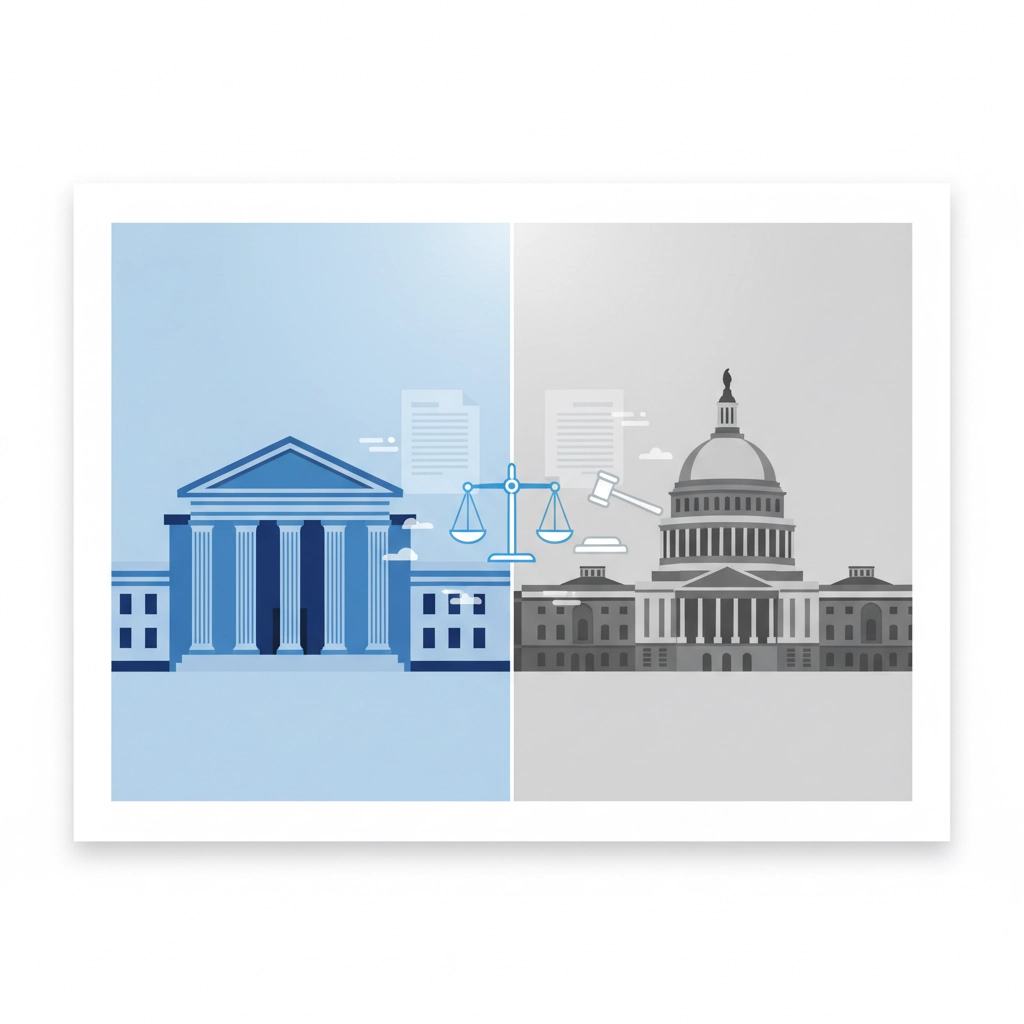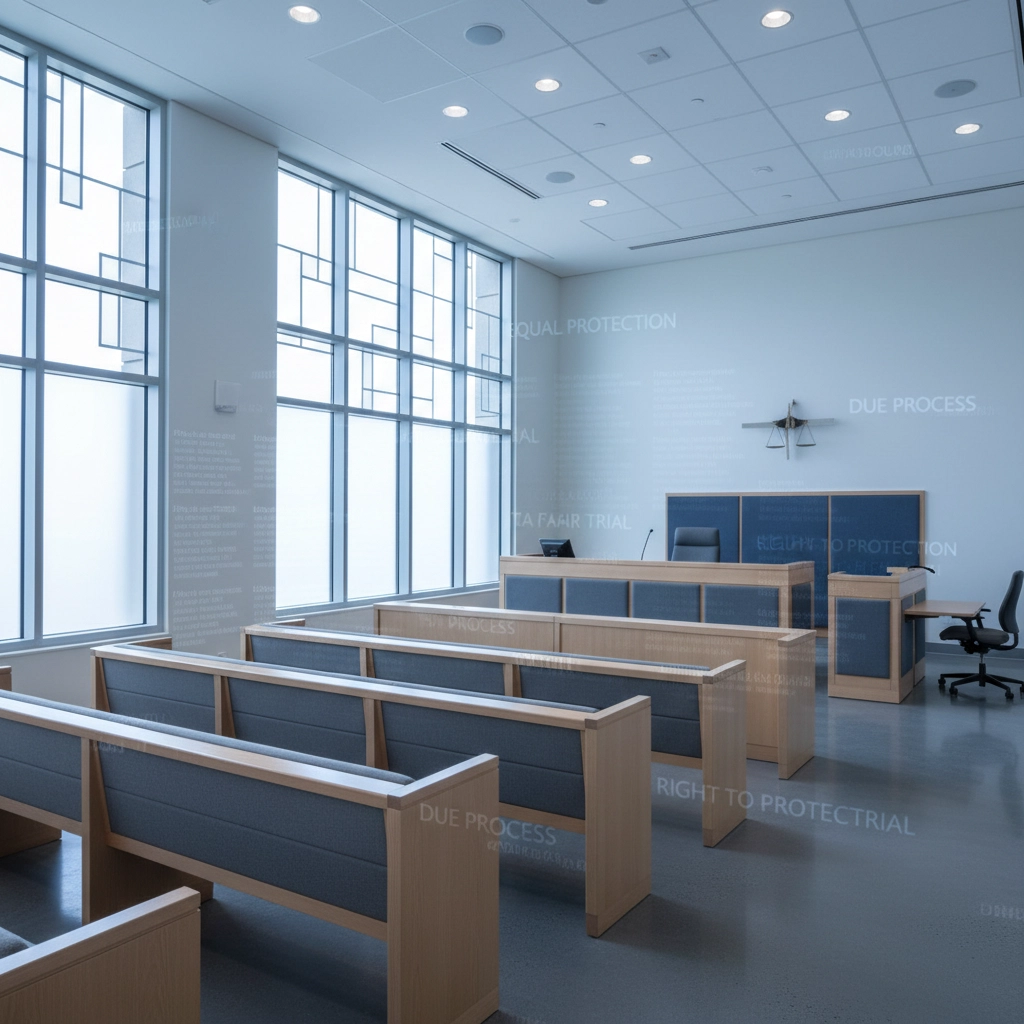Which Level of Government Writes Criminal Laws? Understanding Your Rights When Facing Charges in Virginia
- brookthibault
- Nov 4, 2025
- 5 min read
If you're facing criminal charges in Virginia, you might be wondering who exactly wrote the laws you're accused of breaking. This isn't just academic curiosity: understanding which level of government creates criminal laws can help you better navigate your situation and know what rights you have. The answer is more complex than you might think, and it directly impacts how your case will be handled.
The Reality: Both State and Federal Governments Write Criminal Laws
Here's what many people don't realize: criminal laws are written primarily at the state level, but the federal government also has significant authority to enact criminal laws for specific matters. In Virginia, most criminal charges you'll face are "Commonwealth charges" prosecuted under Virginia state law rather than federal law.
States typically organize their criminal statutes into penal codes, and since these laws vary considerably from state to state, the legal community developed the Model Penal Code in 1962 to create more consistency across jurisdictions. Virginia has incorporated portions of this model into its own legal framework, but the Commonwealth maintains its unique characteristics.

Understanding Virginia's Commonwealth Charges vs. Federal Charges
When you're charged with a crime in Virginia, you'll most likely face Commonwealth charges rather than federal charges. This distinction matters because it determines which court system handles your case and what specific rights and procedures apply.
Commonwealth charges include:
Traffic violations like DWI
Drug possession
Sexual assault
Identity theft
Driving without a valid license
Most firearm-related offenses
Federal charges typically involve:
Crimes that cross state lines
Federal tax evasion
Immigration violations
Federal drug trafficking
Crimes on federal property
The vast majority of criminal cases in Virginia fall under Commonwealth jurisdiction, which means you'll be dealing with Virginia's state court system and Virginia's specific criminal laws.
Virginia's Unique Two-Tiered Court System
Virginia stands apart from many other states with its distinctive two-tiered trial court system. Understanding this structure is crucial if you're facing charges because it directly affects how your case will proceed.
The Four Levels of Virginia Courts:
Supreme Court of Virginia - The highest appellate court
Court of Appeals - Intermediate appellate court
Circuit Courts - Handle felonies and appeals from District Courts
District Courts - Handle misdemeanors and preliminary matters
General District Court: Where Most Cases Start
If you're charged with a misdemeanor in Virginia, your case will likely begin in General District Court. However, these courts operate "not of record," which means no stenographer is present and no jury trials are conducted. This might sound concerning, but Virginia provides an important safety net.
If you're unhappy with the outcome of your misdemeanor trial in General District Court, you have an automatic right to appeal "de novo" to the Circuit Court. This means your case is essentially retried from scratch: it's not just a review of what happened in the lower court.
Circuit Court: Where Serious Cases Are Heard
Circuit Courts handle all felony cases and cannot be tried in General District Court. These courts also hear appeals from General District Court and may convene grand juries to review felony charges. Importantly, in Circuit Court, either you, the prosecution, or the court itself can demand a jury trial: a right that doesn't exist in the initial General District Court proceeding for misdemeanors.

Your Constitutional Rights When Facing Charges in Virginia
Understanding your rights is perhaps the most critical aspect of facing criminal charges. Virginia law guarantees you specific constitutional protections that you should know about and actively exercise.
Fundamental Rights Under Virginia Law
You have the right to:
Know the cause and nature of your accusation
Be confronted with your accusers and witnesses
Call for evidence in your favor
Legal representation
Remain silent to avoid self-incrimination
A speedy trial
Appeal an unfavorable decision (in most cases)
These aren't just theoretical protections: they're practical tools that can significantly impact the outcome of your case when properly exercised.
Understanding Misdemeanor Classifications and Penalties
Virginia classifies misdemeanors into four categories, and understanding these classifications can help you grasp the potential consequences you're facing:
Class 1 Misdemeanors - The most serious
Up to 12 months in jail
Fine up to $2,500
Any misdemeanor without a prescribed punishment falls into this category
Class 2 Misdemeanors
Up to 6 months in jail
Fine up to $1,000
Class 3 Misdemeanors
Fine up to $500
No jail time
Class 4 Misdemeanors
Fine up to $250
No jail time
The Jury Trial Advantage in Virginia
One of Virginia's most distinctive features is how it handles jury trials for misdemeanors. While you can't get a jury trial in General District Court, once you appeal to Circuit Court, you gain access to this crucial right.
This system actually works in your favor. You get two opportunities: first, a quick resolution in General District Court, and if that doesn't work out, a full jury trial in Circuit Court. Many defendants find this appealing because it provides flexibility in how to approach their defense strategy.

What This Means for Your Defense Strategy
Understanding Virginia's unique system can help you make better decisions about your case:
If you're facing misdemeanor charges:
You might benefit from the two-tiered system
Consider whether a quick resolution in District Court makes sense
Know that you can always appeal for a jury trial if needed
If you're facing felony charges:
Your case goes directly to Circuit Court
You have access to grand jury proceedings
Jury trial rights are available from the start
When State Laws Intersect with Federal Authority
Sometimes, actions can violate both state and federal laws. This is where things get complicated, and you might face charges in both systems. For example, drug trafficking might be prosecuted under Virginia law and federal law, depending on the specifics of your case.
In these situations, understanding which government writes which laws becomes crucial for your defense strategy. Federal charges often carry different penalties and procedural rules than state charges, and having knowledgeable legal representation becomes even more critical.
Protecting Your Rights: Practical Steps
If you're facing criminal charges in Virginia:
Exercise your right to remain silent until you have legal representation
Request an attorney immediately - don't try to handle this alone
Understand which court your case is in and what options that provides
Know your appeal rights if you're in General District Court
Don't waive any rights without fully understanding the consequences
Remember, the complexity of Virginia's system: while sometimes confusing: often provides defendants with more options and opportunities than simpler systems might offer.
Moving Forward with Confidence
Facing criminal charges is undoubtedly stressful, but understanding how Virginia's system works can help you feel more in control of your situation. The state's two-tiered approach, combined with strong constitutional protections, means you have multiple opportunities to present your case effectively.
The key is working with someone who understands both the intricacies of which laws apply to your situation and how Virginia's unique court system can work in your favor. Every case is different, and the specific charges you're facing will determine exactly which procedures apply and what strategies make the most sense.
Whether you're dealing with Commonwealth charges in Virginia's state system or facing federal charges, having knowledgeable legal representation can make all the difference in protecting your rights and achieving the best possible outcome.
If you're facing criminal charges in Virginia and need experienced guidance through the Commonwealth's unique legal system, contact Coastal Virginia Law today. Our team understands the complexities of both state and federal criminal law and can help you navigate your case with confidence. Don't face these serious charges alone( get the professional legal support you deserve.)


Comments